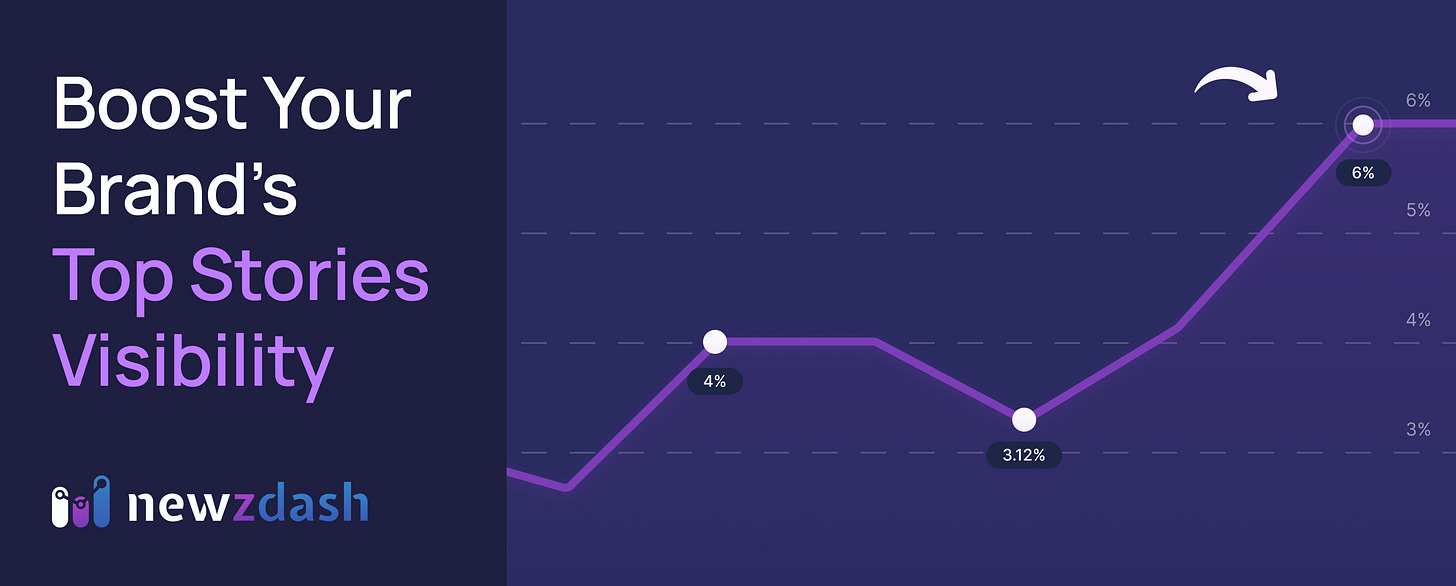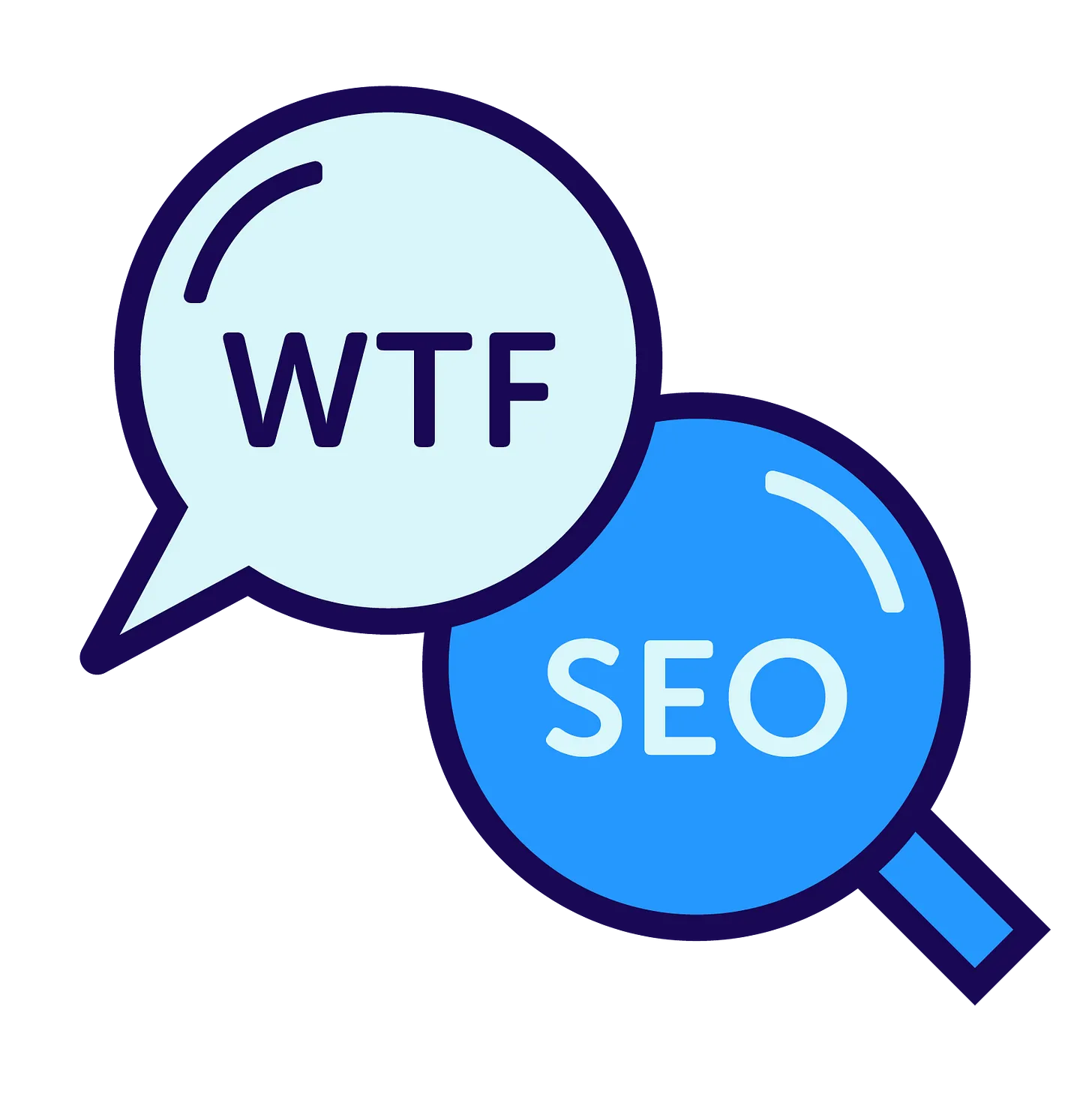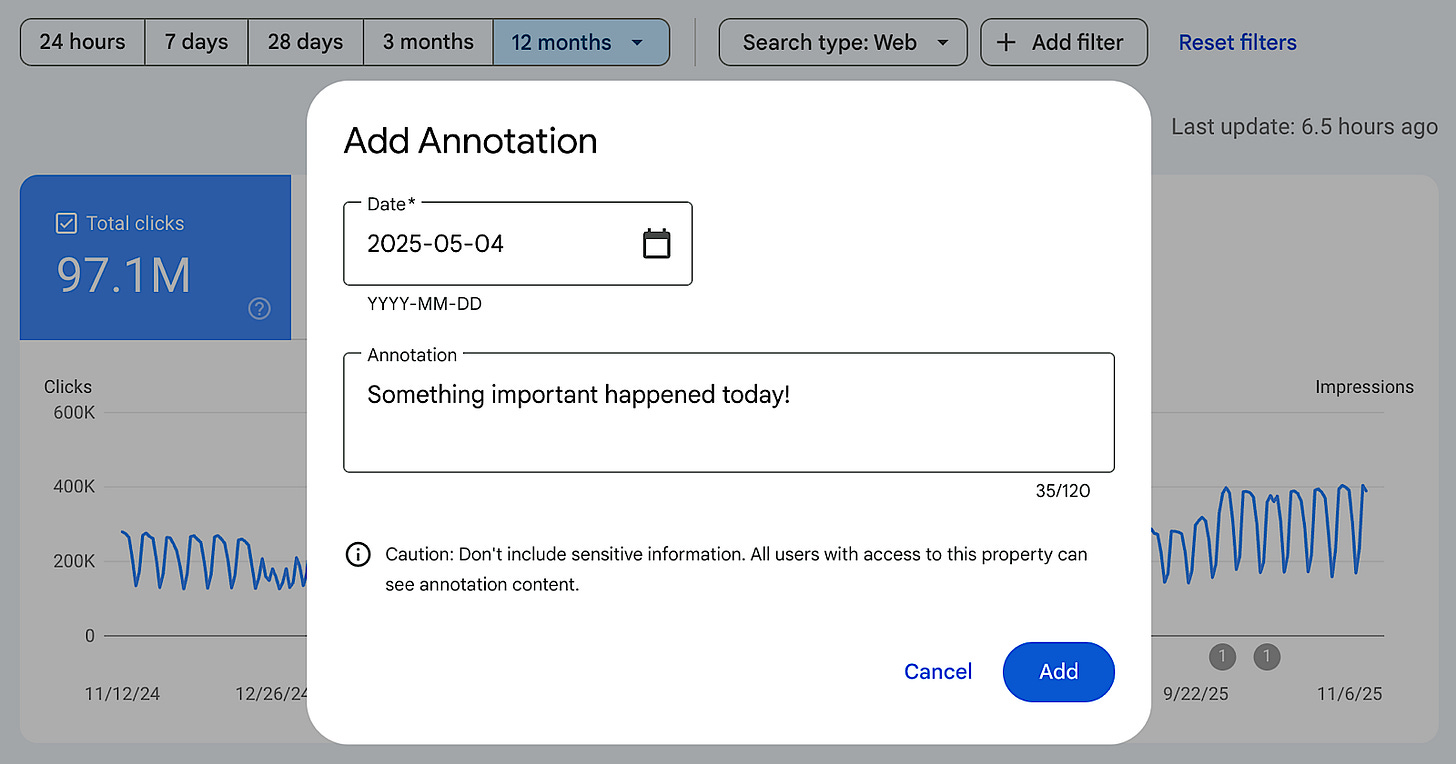Google news and updates
We recap recent changes to Google’s AI model, Gemini, the company’s GenAI offerings, the anti-spam antitrust investigation, plus improvements to Google Search Console (actually a good tweak!).
#SPONSORED
🏆 NewzDash Optimizes Your Google Discover in Real-Time
The ONLY SEO platform that provides competitive Google Discover Data in real-time:
✅ Top Trending Articles
✅ Top Trafficked Domains
✅ Top Trending Topics
✅ YoY Discover Analysis
✅ Article headline and image tracking
✅ Live Discover Optimization
Hello, and welcome back. Jessie and Shelby here, both back from busy, trips-filled weeks! Most recently, we celebrated Shelby’s new apartment, and got to see Yoshi (Shelby’s corgi) show off his new tricks.
This week: Google news and updates. We recap recent changes to Google’s AI model, Gemini, the company’s GenAI offerings, the anti-spam antitrust investigation, plus improvements to Google Search Console (actually good tweaks!).
Thanks to everyone who joined our recent community call. Louisa Frahm, SEO director at ESPN, shared incredible tips on Google Trends. Rewatch the video recording or read a summary or look at our slides.
We’re partnering with Indiegraf for a webinar on AI and what publishers need to know on Dec. 10 at 2 p.m. ET/7 p.m. GMT. Sign up today!

Let’s get it.
THE 101
Google’s updates to AI
Introducing Gemini 3
What is it? Last week, Google announced Gemini 3, the newest iteration of the large language model (LLM) driving all of the company’s artificial intelligence features. In a press release, Google said Gemini 3 is “much better at figuring out the context and intent behind your request,” which means fewer prompts by the user to get the intended result.
Google also announced it is adding Gemini to Android Auto. Google always planned to replace Google Assistant with Gemini across its platforms due to its more conversational AI model that can interpret and respond to more sophisticated prompts, but are now rolling it out everywhere people use its products.
What it means: The company said Gemini will be used in its features immediately: AI Mode, the Gemini app, AI Studio, Vertex AI and Google Antigravity, its agentic development platform. This is a change from previous releases, where Google waited before making the newest Gemini iteration the default.
New AI-powered features in Search for travel
What is it? Similar to Slack’s canvas feature, Google’s new Canvas tool in AI Mode can now build out a detailed itinerary based on personalized prompts. Google also announced two other travel-aided features: the global rollout of Flight Deals, the AI-powered search tool; and AI-powered agentic booking, which can currently schedule restaurant reservations and can potentially do hotels in the new year.
Closing arguments in U.S. vs. Google ad tech case
What is it? Last week, the ad tech antitrust trial finished with closing arguments, including testimony from Google’s lawyers in a final plea to avoid the breakup of its advertising business. After ruling in April that the company holds two illegal ad tech monopolies, the same judge will decide what to do to restore competition. The U.S. Department of Justice has asked the judge to force Google to sell its ad exchange, AdX.
What it means: The decision could change how publishers generate revenue from ads.
Both sides presented long-held views: the DoJ argued for a structural remedy (aka a sale of Google’s ad business), while Google stated such a change would cause “significant uncertainty and disruption” for advertisers and publishers, saying this is all rooted in trust.
EU antitrust investigation into Google’s anti spam policy
What is it? The European Union opened an antitrust investigation in early November into Google’s spam policies following complaints that the updates hurt revenue. This follows Google’s crackdown of spam in algorithm updates.
Reminder: Google’s spam updates are in response to the proliferation of AI and spam content in Search results. Google’s site reputation abuse policy targeted sites that have pages from third parties, using the host for a boost in rankings (aka parasite SEO).
The EU said this crackdown had a negative impact on a legitimate and often-used monetization tool for publishers. Antitrust chief Teresa Ribera said Google’s policies “do not allow news publishers to be treated in a fair, reasonable and non-discriminatory manner” in Search.
She also said the investigation will ensure publishers don’t lose out on this revenue stream at a “difficult time for the industry.” In response, Google said in a blog post that the investigation “is misguided and risks harming millions of European users.”
The company said their anti-spam efforts are how they cull “pay-for-play tactics that degrade our results.” Anti-spam policies are meant to “level the playing field,” so spammy tactics are not used to edge out the competition, Google said.
What it means: If the investigation is successful, Google could be faced with fines worth up to 10 per cent of parent company Alphabet’s global annual turnover. If a systemic issue is uncovered, the investigators could recommend another divestiture of Google’s — similar to the ad monopoly ruling — or ban the company from making acquisitions.
Google adds confusion around structured data
What is it? Google recently added a deprecation notice to the practice problem documentation as part of its effort to “simplify the search results page,” saying it will be fully deprecated in January 2026. This announcement caused confusion, including on Reddit, where one user asked, “Is Schema still worth it?”
This confusion prompted a reply from Google, saying as part of the review process, the company identified infrequently used features that don’t add value. The changes are unlikely to be noticed by most users.
“In these cases, we’ve found that other advancements on the search results page are able to get people what they’re looking for more seamlessly.”
What it means: Google is constantly tweaking search results. Deprecating some features is common, and it’s not an indication Google is radically changing its use or use of structured data.
Google adds custom annotations to Google Search Console
What is it? Google announced two minor tweaks to Google Search Console this month with the addition of annotations and the branded queries feature.
With the annotations feature, users can:
Add up to 200 annotations per property;
Delete (but not edit) annotations;
Write up to 120 characters, attached to a specific date;
Each user with property access will be able to view custom annotations (so don’t leave snarky notes in the annotations!).
Google said the feature is designed to allow users to add “contextual notes” directly into Search Console reports. “Think of it as a personal notebook for your Search data.”
Annotations can help mark when Google’s algorithm updates rolled out, when a site introduced product or design changes, when new site features were added, or when significant news events occurred.
With the branded query feature, users can:
Segment query data into branded and non-branded groups;
Apply this filtering across all search types (web, image, video and news);
Track key metrics (impressions, clicks, position and CTR) against these groups.
Google said that it uses an “internal, AI-assisted system” to determine the terms differentiation (it’s not just regex!).
The feature is being rolled out slowly in the coming weeks.
What it means: Some of this functionality has been available in third-party tools (like GSC Guardian) for a while, and while it is not as helpful as a Top Stories or AI Overview filter, it is still a nice tweak to GSC.
#SPONSORED - The Classifieds
Get your company in front of more than 13,500 writers, editors and digital marketers working in news and publishing. Sponsor the WTF is SEO? newsletter!
RECOMMENDED READING
🔥 Semrush: Adobe to acquire Semrush.
👎 Aleyda Solis: What’s the worst take about AI search right now?
🤖 Danny Goodwin: Most ChatGPT links get 0% CTR — even the highly visible ones.
🔮 Daniel Cheung: SEO’s future isn’t content. It’s governance.
💡 Shaun Anderson: Decoded: Google’s Quality Rater Guidelines for content quality.
🌍 Dani Leitner: Multilingual SEO: Building topical authority across languages.
⛈️ Aleyda Solis: Navigating algorithm shifts and AI Overviews [slide presentation].
🔗 Fabrice Canel & Krishna Madhavan: How AI Search is changing the way conversions are measured.
What did you think of this week’s newsletter?
(Click to leave feedback.)
Catch up: Last week’s newsletter
Have something you’d like us to discuss? Send us a note on Twitter (Jessie or Shelby) or to our email: seoforjournalism@gmail.com.
Written by Jessie Willms and Shelby Blackley









